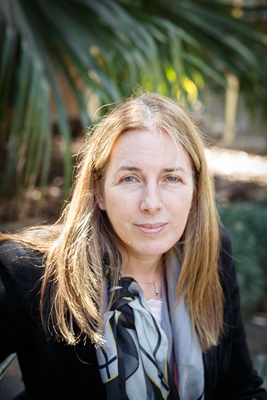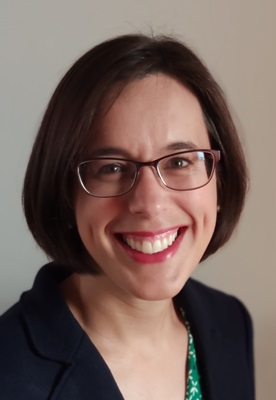2023 | Volume 24 | Issue 6

The Surgical Trainee Organisation for Research – Central Coast (STORCC) is a research collaborative giving Trainees, junior doctors and medical students across Australia and Aotearoa New Zealand an opportunity to participate and lead national and international research projects.
STORCC was established in 2016 at Gosford Hospital in regional New South Wales to make collaborative research more accessible and inclusive for doctors at all levels of experience and locations.
It is part of the RACS initiative, Clinical Trials Australia New Zealand (CTANZ), which aims to promote and facilitate surgical research networks across Australia and Aotearoa New Zealand that are led by students, junior doctors and surgical Trainees.
Since the inception of STORCC, its members have participated in approximately 20 collaborative research studies, which have been implemented and completed by surgical Trainees, prevocational doctors and medical students.
A current study—the Global Evaluation of Cholecystectomy Knowledge and Outcomes (GECKO)—involves surgical researchers at hospitals across every state and territory in Australia and Aotearoa New Zealand.
The study aims to determine the quality of gallbladder surgery provision globally, including critical view of safety, bail out procedures, adverse events and rates of unsuspected gallbladder cancer.
GECKO will also analyse the environmental sustainability of gallbladder surgery to decrease the environmental impact of the operating theatre.
Since early 2023, STORCC has been the Australian national lead for the GECKO study and has facilitated the addition of 66 Australian hospitals to the ethical approval of the study.
General surgeon at Gosford Hospital, University of Newcastle Associate Professor of Surgery and STORCC consultant lead, Associate Professor Amanda Dawson said collaborative studies like GECKO had various benefits for junior doctors, patients, the profession and the wider community.
“I think getting junior doctors involved in good quality research is a stepping-stone for them to go on to do research more formally as part of their careers,” she says.
“But even if they don't, it creates surgeons who are a lot more research literate, and evaluating literature is really important as we need to be able to apply that to our clinical practice.
“It's about establishing that critical thinking, which is important.”
Trainees also gain communication and leadership skills through their involvement in collaborative research.
“I am a research mentor and a surgeon, but for GECKO, and other collaborative studies, I also become a member of the site team, a data collector under the leadership of the Trainee leading the project. It turns the hierarchy on its head.”
Associate Professor Dawson said that while STORCC provided benefits for Trainees, it also ensured knowledge was retained and built, despite the movement of Trainees through different health services and also provided more widely representative research.
“For quite a few years we'd have junior doctors coming in wanting to do their own research and, then they would move on,” she says.
“Every six or 12 months a new group came in and they had to learn how to do the research and how the procedures worked in the hospital. The establishment of STORCC has created a way to help preserve corporate knowledge and encourage people to do bigger, collaborative projects, rather than their own smaller projects.”
The larger projects offer the opportunity to access and evaluate data that more accurately reflects the experience of the wider community, compared with studies that captured data from a limited number of patients in a single centre.
“We're getting a really huge contemporaneous snapshot of real-world practice,” she says.
“It's a little bit like crowdsourcing for research, where groups of students and junior doctors work together to collect data that is really powerful.”
Despite the benefits of collaborative research, it is not without its challenges and the larger the study, the greater the barriers in gaining ethics approvals.
Associate Professor Dawson says that she would love to see consistency in ethics processes across health services and states.
“The lack of consistency is a bit of a nightmare and can cause significant delays,” she says.
“Ethics is dealt with differently at every single hospital and for one of our studies, we are still waiting for approvals from 20 per cent of sites four months later.”
General and colorectal surgeon at Te Whatu Ora and senior lecturer at University of Otago, Dr Deborah Wright has had extremely positive experiences researching in collaboration with STORCC and other CTANZ research networks over many completed projects. Dr Wright is the Aotearoa New Zealand national lead for the GECKO study.
“This model of research, in which medical students and Trainees work together to develop and operationalise research studies, reduces research waste, produces significant clinically actionable research outcomes, and provides a platform for the development of research skill and capability in our emerging surgical workforce.”
Dr Wright said it was important that the design of the study was appropriate for the health context in different locations.

“When Aotearoa New Zealand contributes to an international study it is important that we ensure that the study design is fit for purpose in our health context.
“This is facilitated by the contribution and leadership of New Zealanders to large international collaboratives.”
She also said it was crucial that training organisations appropriately recognised student and Trainees’ contribution to research.
House Officer at Middlemore Hospital and honorary clinical lecturer at the University of Auckland, Dr Chris Varghese, became involved in research as a medical student.
Dr Varghese has worked with STORCC in several collaborate cohort studies, including GECKO, COVIDSurg, HIPPO (a study on global inguinal hernia surgery) and POSTVenTT (a study on preoperative anaemia).
He said the studies had numerous benefits for students, junior doctors and Trainee surgeons. This included the opportunity to work with global leaders as part of international teams, the chance to learn about study design, collaboration, publishing, academic rigour, analysis and surgical research.
The benefits also extend to patients, with large volumes of data improving the quality of the studies and building robust evidence to advance patient care.
As a result of his experience in collaborative research, Dr Varghese aims to become an academic general surgeon in the future.
“Collaboration is key to maximising yield from your research—you enable improved generalisability, better dissemination, and more robust findings through a collaborative model of research,” he says.
“It’s also a great model to disseminate core research skills and up-skill surgeons of any stage.”
Surgical Trainee, Dr Matthew McGuinness is leading the GECKO study at Whangarei Hospital in Aotearoa New Zealand. He has significant experience leading collaborative research and is currently the steering committee chair of another CTANZ collaborative network, Surgical Trainee Research, Audit and Trials Aotearoa (STRATA).
He says it is significant that health services in diverse locations and of different sizes have access to collaborative studies.
“Collaborative research is inclusive; it allows the involvement of many hospitals, including small hospitals that typically are not able to participate in research,” he says.
“Due to the ability to collect data from smaller hospitals, it means diverse groups of patients are represented. This is particularly important in Australia and Aotearoa New Zealand as a large group of patients live rurally and are often not represented in tertiary hospital research.”
Dr McGuinness says collaborative research is inclusive of doctors at all levels, providing junior doctors the opportunity to learn from more experienced surgeons and researchers.
The multitude of benefits from collaborative research is evident, and Associate Professor Dawson looks forward to assessing those benefits in a new research study. The study will investigate the impact of participation in STORCC’s collaborative research on Trainee doctors and will gauge the benefits of the research in Trainee’s professional development, clinical practice and careers.